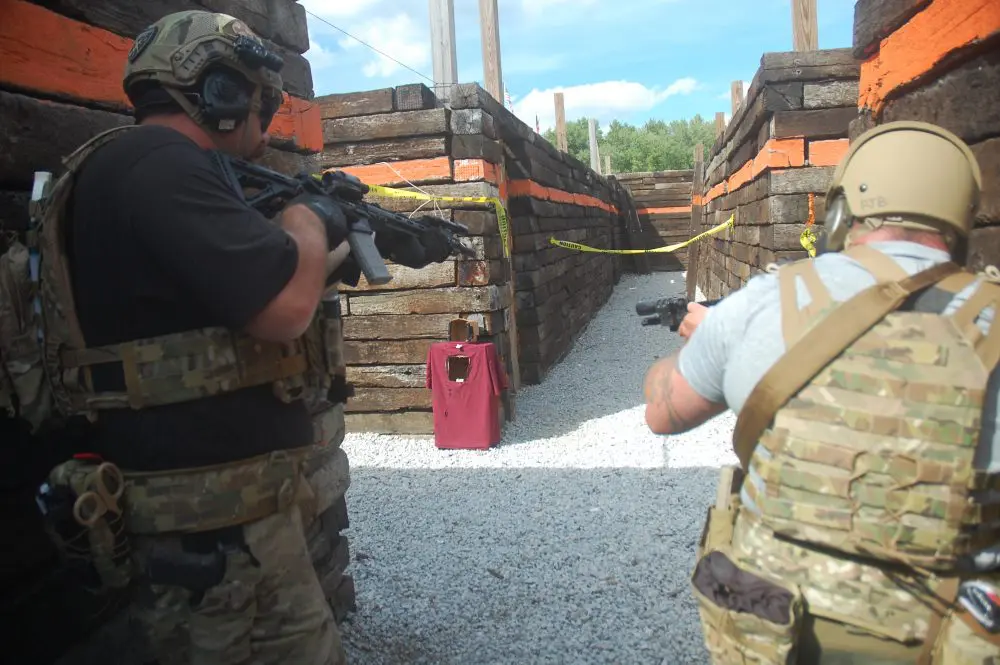 What do these three scenarios have in common? Stress.
What do these three scenarios have in common? Stress.
While they’re all very different and only one scenario presents a danger of bodily harm, your body reacts to them similarly and goes into a heightened state of awareness called the stress response.


Table of Contents
THE STRESS RESPONSE
The stress response, also known as the “fight or flight” response, is your body’s reaction to events or conditions perceived as a threat or danger. During this response, your body releases certain hormones, such as adrenaline and cortisol, that make your mind more alert and physically prepare your body to survive the life-threatening situation. Unfortunately, over thousands of years, the human body has been conditioned to respond in this manner to any perceived stressor, whether you’re in a life-or-death engagement, stuck in traffic, or the wife’s yelling at you because you left the toilet seat up … again.
Once the perceived threat has passed, your bodily systems are designed to return to a normal state of relaxation. However, in times of chronic stress, such as serving in a war zone, this relaxation response rarely takes place, and your body continues to produce excessive amounts of stress hormones. Over time, these hormones have been shown to contribute to high blood pressure, heart disease and autoimmune diseases.
The stress response is how your body reacts to the demands of your environment. Identifying the type of stress you’re experiencing is key for managing it to minimize any negative effects on your health.
GOOD STRESS
Acute stress—your body’s immediate reaction to a threat—helps to improve your performance, whether in the boardroom, on the athletic field or in the streets of Fallujah. This immediate and intense response is short-lived and usually doesn’t pose a health risk for healthy individuals.
Physical and mental effects:
- Heart rate and respiration increase to bring oxygen and nutrients to large muscles
- Blood vessels constrict to minimize potential bleeding
- Pupils dilate to assist in identifying threats
- Sense of hearing is heightened
- Mental function is enhanced for problem solving
The physiological changes experienced with acute stress are designed to sharpen your senses and reaction times, enabling you to perform optimally in life-threatening situations. Problems arise, however, when acute stress continues unresolved and eventually transforms into chronic stress.
THE BAD STRESS
Chronic stress is stress that has existed for weeks, months, or in some cases, years. You may not even realize you’re suffering from it until physical or mental symptoms begin to manifest.
Chronic stress is usually caused by adverse events such as the death of a loved one, financial problems, strained relationships, or employment in high-risk occupations.
Physical and mental effects:
- Inability to concentrate
- Obesity
- Mood swings
- Hair loss
- Depression
- Compromised immune system
The effects of chronic stress on your health should not be dismissed, as 75 to 90% of all doctors’ office visits are for stress-related ailments, and the Occupational Safety and Health Administration reports chronic stress costs American industry more than $300 billion annually.

STRESS AND THE ARMED PROFESSIONAL
In late September 2008, I was contacted by a security services firm that provides executive protection security contractors for various government entities worldwide. Due to the sheer number of contracts this organization fulfills and the limited availability of qualified candidates, their security contractors were working 15- to 18-hour shifts, up to three weeks straight without relief and in extremely high-risk environments. After three months of working this grueling schedule, the executive protection team began showing signs of severe physical, mental and emotional stress:
-

Short-term stress heightens your senses and prepares you physically for lifethreatening incidents. Impaired logical thinking
- Loss of coordination
- Frequent illness
- Increased reaction times on the shooting range
The detrimental physical and mental effects experienced by the team were slight at first, but within three months culminated in a negligent discharge inside one of the motorcade vehicles.
My job was to design a nutritional supplement protocol that would restore the security detail’s ability to operate at a high tempo but without reduced operational capabilities.
STRESS MANAGEMENT
A large body of evidence suggests that working long hours reduces alertness and decision-making abilities, deteriorates performance, and increases accidents and vulnerability to illness. Managing fatigue, therefore, is of prime importance for maintaining your performance, safety and health.
The good news is that there are a number of nutritional supplements that have proven effective in managing stress, even in environments where the source of the stressor cannot be alleviated.
SUPPLEMENTS FOR MANAGING STRESS AND FATIGUE
While numerous energy drinks claim to give you an added boost of energy, the problem with the majority of them is that they contain an inordinate amount of sugar. And while the sugar rush will initially give you a burst of energy, eventually your blood sugar levels will come crashing down, leaving you feeling as if you just went 15 rounds with Mike Tyson.
When designing a supplement plan for those who need to maintain a high level of focus and “keep their head in the game,” I prefer to use natural ingredients that can manage stress and fatigue without negative side effects. Here are some of the most reliable:
Branch Chain Amino Acids
Branch chain amino acids (BCAAs) are comprised of three essential amino acids: leucine, isoleucine and valine. Used by athletes to accelerate recovery, BCAAs have also been shown to increase exercise endurance, especially exercise conducted in high temperatures and at high altitudes. I use BCAAs for clients serving in the mountains of Afghanistan and during 120° F summer days in Iraq. An additional benefit of BCAAs is their ability to counter fatigue-induced declines in mental functioning.
Beta Alanine
Beta alanine is a “rate limiting precursor” to carnosine production, which means that carnosine levels can only be increased when additional beta alanine is supplied. Elevated carnosine levels are important because its primary function is the buffering of hydrogen ions (H+). During intense exercise, the body produces large amounts of H+, causing the familiar burning sensation in your muscles. If H+ continues to be produced, your muscles’ force production will eventually decline. Beta alanine, by increasing carnosine production, increases strength and delays fatigue. As such, beta alanine has become a favorite among my ultra-marathon, triathlete and special operations clients.
Tyrosine
Tyrosine is required by the brain to manufacture the hormones epinephrine and norepinephrine, which initiate the “fight or flight” response. This is vital because epinephrine and norepinephrine levels are severely depleted during stressful events. Tyrosine has been used successfully by the U.S. military to reduce the effects of stress and sleep deprivation on physical and mental performance. During times of chronic stress, tyrosine can provide you with an edge.
Java Stim
Java Stim is a unique nutritional supplement that combines tyrosine and Lphenylalanine, for their synergistic effect. L-phenylalanine is an amino acid known to improve mental acuity and pain tolerance, while relaxing stressed muscles and joints. Java Stim is indicated for those who need to sustain the highest level of mental and physical alertness for extended periods of time.
TIRED BUT WIRED
You’re lying in bed exhausted, but your mind is going a hundred miles an hour and you can’t fall asleep. Concerns about your mortgage, office politics and numerous other “what-if” scenarios keep your mind wired while your body craves sleep. In these instances, the following nutritional supplements will help maximize the relaxation response, creating optimal conditions for deep, restorative sleep.
Magnesium
Magnesium is required for more than 400 metabolic reactions in your body and is essential for the detoxification of cortisol, a hormone produced during the stress response. The greater your stress levels, the more cortisol you produce. Elevated cortisol levels will drive your nervous system into overdrive, delaying activation of the relaxation response. When you lie in bed wide awake, cortisol is to blame. Numerous studies have also demonstrated that depleted magnesium levels can negatively affect electrical activity in the brain, causing agitated sleep and frequent waking. Due to magnesium’s sedating qualities, it is best taken a few hours before bedtime.
Inositol
Inositol, sometimes referred to as vitamin B8, is necessary for the healthy formation of cells and has been shown to be effective in the treatment of depression, anxiety and OCD. Inositol produces a calming and relaxing effect by activating GABA, a sleep promoter in the brain, and by adjusting serotonin levels. When it comes to promoting natural, restful sleep, inositol is my nutritional supplement of choice.
CONCLUSIONS
Stress is a daily occurrence in life. It’s unavoidable. And while this article was written from the perspective of assisting the armed professional, the recommendations hold true for anyone, regardless of profession, who is seeking to minimize the negative impact of stress on their mental and physical health. The nutritional supplements listed here can make the difference between adequate and optimal performance, regardless of your field of endeavor.





